The Filmmaker's Guide: The Classic and the Epic
An Analysis
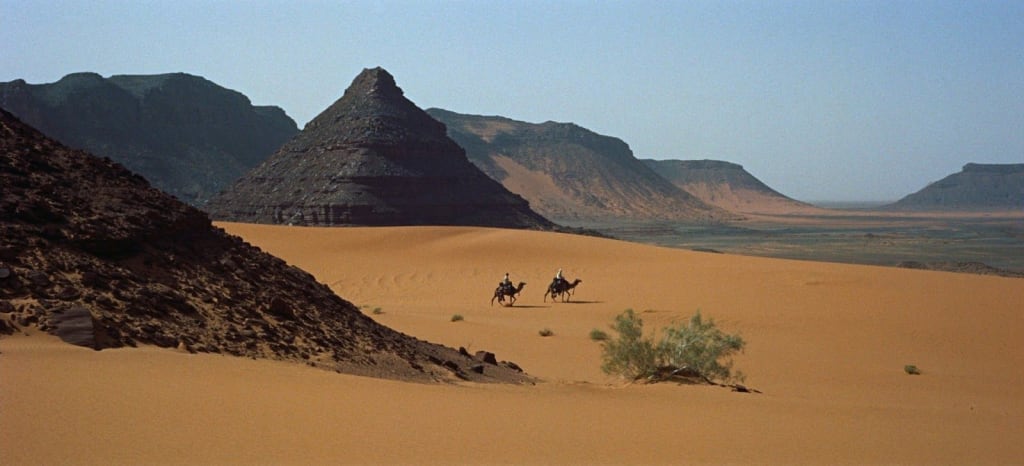
Various films fall into the title 'classic' and yet when we look at the epic, there are only certain films that fall into it. When we talk about classic movies, normally we talk about the films of the Golden Age of Cinema. However, if we were to narrow it down to talking about epics of the time, we would be looking for some very rigid criteria. Be that as it may, the films we find within these two tick-boxes could not actually be more different. So how do we put a definition on it and what are we really looking for in this strange and vague set of categories?
As we have already noted, a classic film is a film made and released in the Golden Age of Cinema. It deals with a small group of movies that were churned out during cinema's most incredible technical revolution which is said to range somewhere between the Great Depression and the Break Up of the Beatles. (Note: I'm pretty sure the Beatles did not have anything to do with the ending of the Golden Age of Cinema, it is really just to put it into perspective).
An epic film deals with a few things. First of all, central to the film must be a character with a journey to go on. Whether this be a physical journey, spiritual journey or even a romantic affair of some kind - the audience need to be able to tell that this character is the centre-most of the film and nearly all of the plot line passes through him/her. Next, we need various hinderances along the way in order to make the hero's small victories win over the audience. Finally, we need an ending in which the hero is seen as a hero. This can be either in the hero returning to the place they were at the beginning, maybe with some sort of elixir - or in some cases, it deals with the hero's almost martyr-like death.
For more information on how the epic is formed through character, please refer to the book "The Hero With 1000 Faces" by Joseph Campbell.
The following films we will look at here should help you understand three main things:
1. Why audiences are drawn to epics of this kind
2. What the epic offers to cinema as a whole
3. How and why this particular epic has the legacy it does
The Five Epics
1. Lawrence of Arabia (1962)
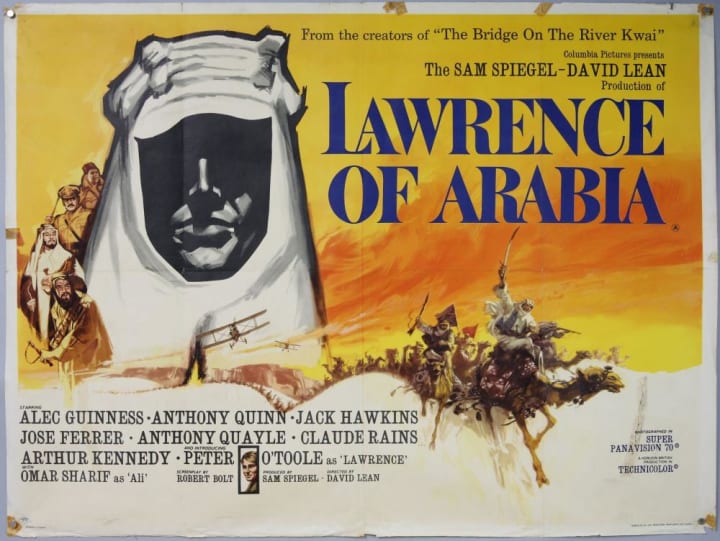
Based on the life and times of T.E Lawrence, this British Epic Drama is possibly one of the best known classic films of all time and yet, very few people have actually made it all the way through more than once because of the film's incredible length. Audiences would be drawn to this kind of epic because of its breathtaking shots of the desert. Something that we can see copied in Peter Jackson's "Lord of the Rings" trilogy is the panoramic and extreme-long shots of the plains and landscapes, making the characters seem minuscule in comparison.
The thing that this epic offers to cinema as a whole is the way in which it tells the story of one character's journey through an unfamiliar land. I believe that these stories though scarce, are important to tell since they humanise us with those who are unfamiliar to us. We see a man who is in foreign land being able to live and work whilst also completing his 'mission' or 'assignment' and so, as the audience, we are drawn into his experiences. This offers cinema a whole new meaning to the genre 'adventure'.
The reason this film has the legacy it does is because of the way it is filmed. And yet, it is also because of the dialogue and acting of Peter O'Toole. This film has been imitated in many genres through the way in which it presents the grand scale of the landscape to the travels of the character through unchartered territory (see: Apocalypse Now) and through to the surprisingly articulate character being someone of incredibly street-wise knowledge as well. It presents to us all the combinations of the journey - physical, spiritual, etc. and yet, keeps our eyes directed on these amazing shots of the desert plains.
2. Citizen Kane (1941)
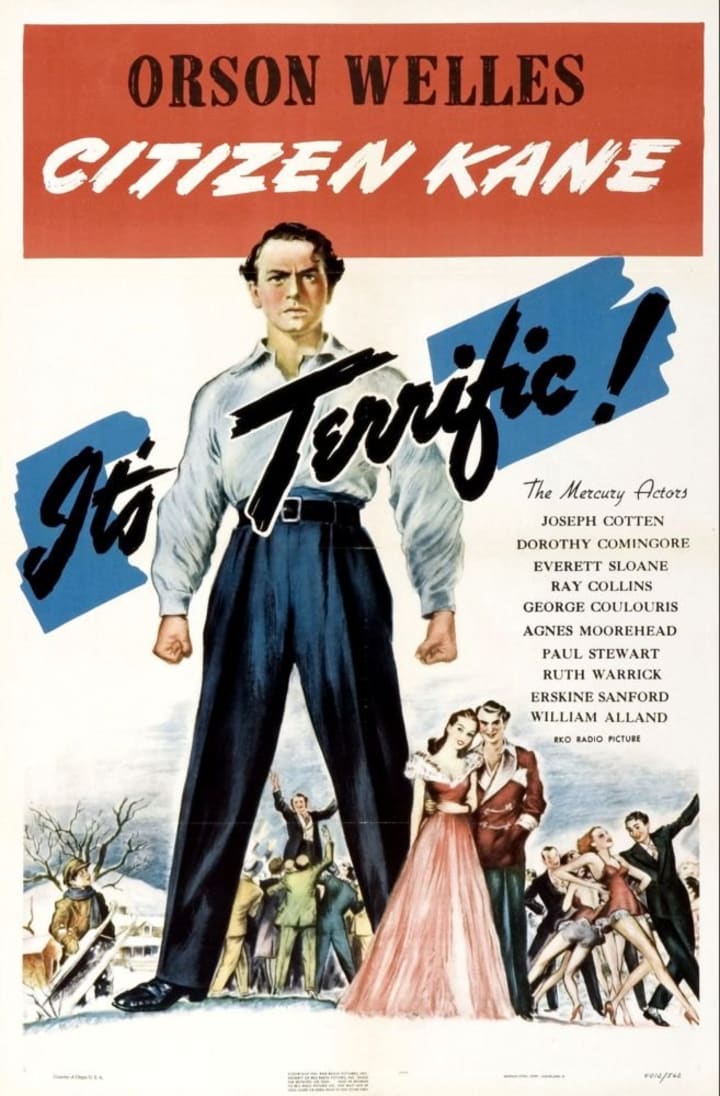
Everyone knows that "Citizen Kane" is possibly one of the greatest films ever made because of the way it presents us the character-driven epic. About a media mogul who builds his private lair of Xanadu filled with material things, his world comes crashing down around him upon his death and, even though there's wide coverage about it, there's little to know what can be done with all the 'stuff' he has accumulated over the years. Plus, knowing what 'rosebud' is may help you figure out what's actually going on with him.
The reason why we as audiences are drawn to this kind of epic is because we want to see the whole 'rise and fall' situation. We want to see a tragedy happen to a major character with too much ambition. Since the times of Shakespeare's "Macbeth", audiences have always waited in wonder as a normal man turns into a tyrant when his power increases, driving him almost mad and finally he is brought back down to earth with possibly violent consequences. Imitated in many, many books and films over the years, this epic theme is explored most famously in what is considered the 21st Century's answer to "Citizen Kane" - "There Will be Blood" (2007).
Orson Welles' brilliant cinematic techniques, such as the 'News on the March' sequence, offers a great amount to cinema and the shows us the way it was changing in the 40s. When it comes to playing with the chronology of the film, I think that this is possibly our first real insight to how that is done properly on screen. It offers us a character-driven story, but not one that is entirely linear. We get to see various montages, flashbacks and little inserts of anecdotes that help us to understand the character - as for the story, it is very Shakespearean and the audience rely on the character information to put together the pieces of the storyline. To cinema, it offers a great deal of change - this is the beginning of modern cinema altogether.
"Citizen Kane" has an amazing legacy being voted in the top five of the greatest films of all time by various magazines, film critics etc. But, I believe that the one reason its legacy has lasted as long as it has is because it shows us something that we do not really see before 1940s cinema: satire. Orson Welles' film takes an attack on a very real person and this is done through the satirical nature of the Shakespearean tragedy of the main character. The accumulation of 'things' and 'materials' becomes a very real critique of the person/people in question and the term 'Citizen Kane' has come now to be in place of the word 'tyrant' even in everyday language.
3. 2001: A Space Odyssey (1968)
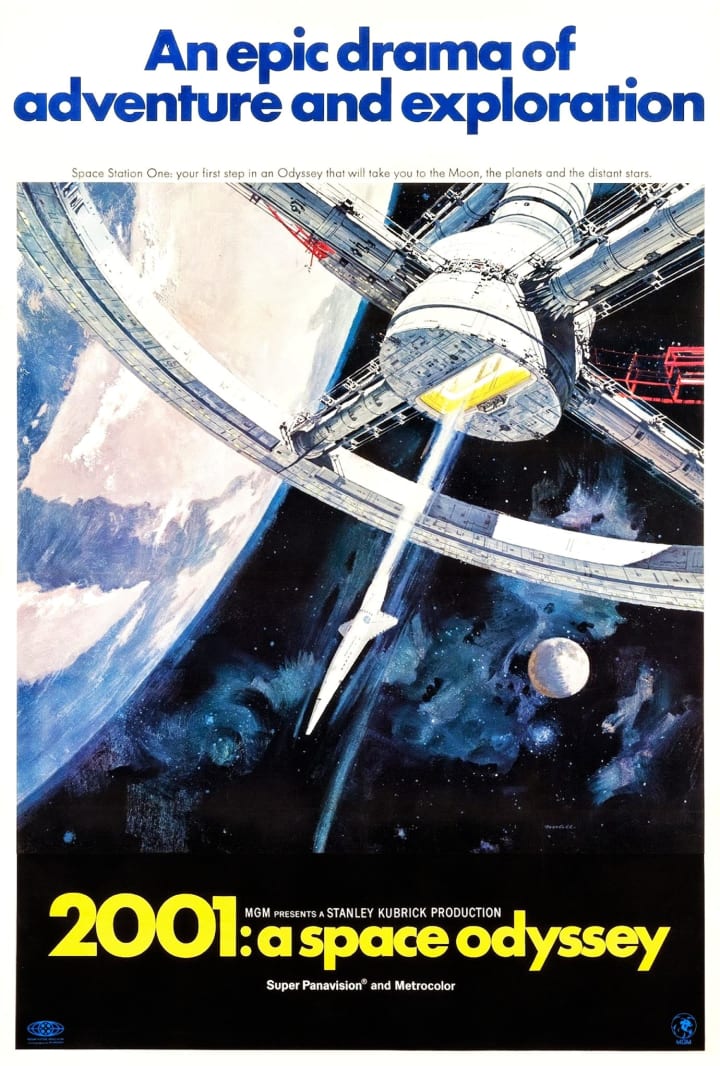
Completely different to the entire premise of the previous two films comes a film that is almost Sci-Fi in nature but through its storyline, it is an epic. Based on the novel by Arthur C Clarke, this film became one of the most well-known films by the subversive director Stanley Kubrick and possibly the best-loved space-based film in all of history. About a relatively unfortunate team aboard a ship with the malevolent HAL, this film demonstrates to us our deepest fear: becoming irrelevant in the progress of our planet.
The reason why audiences are drawn to this film is not only because it shows us this fear, but also because it bases itself on one of the most loved storyline types in all of history - The Odyssey. Originally written by Homer the Greek Poet, this storyline has the ability to draw us in through its constant hinderances to the characters' expeditions. They encounter monstrous things beyond their imagination, they are on a course on which they have no idea how it is going to end and finally, they have not got a single clue if there really is any way home.
The things that this film offers to the progress of cinema are extreme and many, but I am going to concentrate on just one: shots. The way in which this film is shot is amazing. We have what I like to call 'double extremes'. The 'extreme close up' of the facial expressions of the cast and the 'extreme long shots' of the vast and unending universe. Copied vehemently by films like "Interstellar", "Gravity", "Sunshine" and "Armageddon", this film has had an incredible influence of the seriousness of a space-based tragedy.
The reason why this film has endured for as long as it has with a pretty polished record for being one of the most visually stunning films in history is because of not only the way it is filmed, but also the way it feeds to us an orchestra. The soundtrack, the shots, the acting, the colours and tones, the light and the dark all fit together almost perfectly in this space opera and so, when each audience comes to watch it, there is a satisfaction in the way it is put together.
4. Anatomy of a Murder (1959)
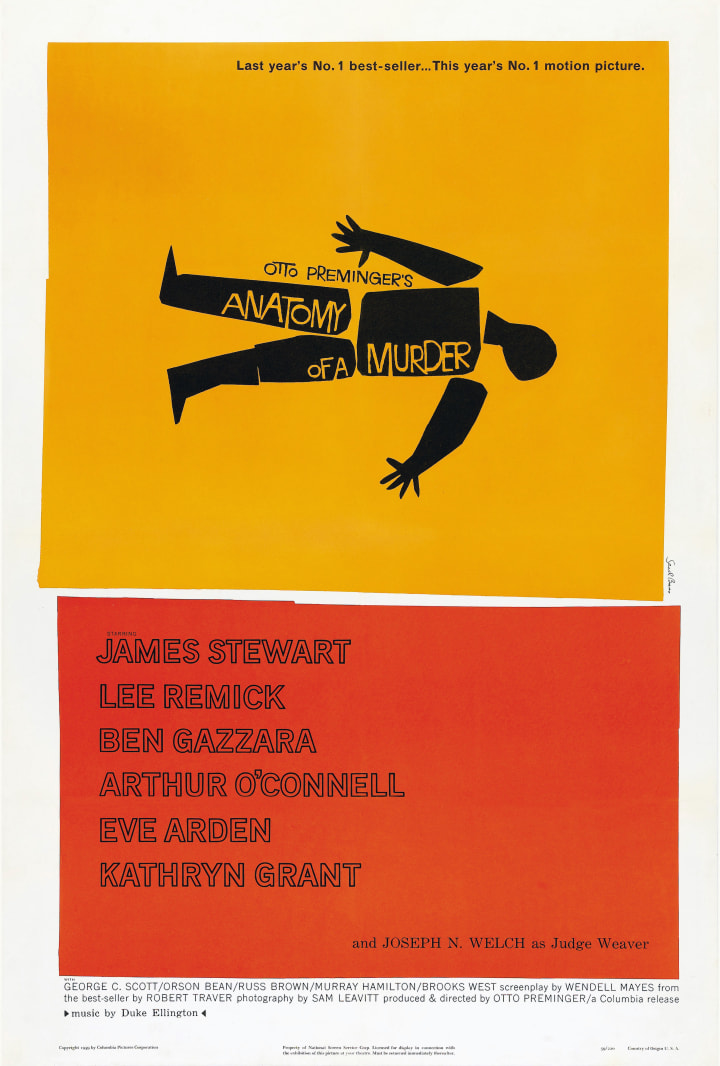
One of the greatest courtroom epics ever filmed, "Anatomy of a Murder" slowly became one of the most respected crime films of its era. It is about a young woman who has been raped and her partner beat the rapist to death. After this, her partner is arrested and sent to prison. The job of the lawyer is to get him off for murder by proving that he was acting in defence and yet, the entire case seems a bit off. With his entire career and possibly his life on the line, James Stewart acts his way to one of the greatest performances in his career.
Audiences have always been drawn to unravelling crimes and mysteries, just look at the popularity of the documentaries of missing people, murderers and serial killers on Netflix and Amazon Prime. But the special thing about this film that does something to draw us in even more is that it offers us more than just a murder taking place and people trying to unravel it. But there are relational problems, problems of inheritance and ultimately, there are problems with various pieces of the evidence and story. It offers us many sides from which we may view this through the characters who are altogether unreliable themselves.
To cinema, "Anatomy of a Murder" has handed its courtroom epic. Through this, we see various things come out of it such as: "American Crime Story Season 1: The People Vs. OJ Simpson", "A Few Good Men", "The Social Network", "The Exorcism of Emily Rose" and probably, the most relevant to "Anatomy of a Murder" - "Primal Fear". The way in which "Anatomy of a Murder" has influenced all of this is because it makes us want to believe the various characters to whom we instantly identify - there is one of each character. There is one main, innocent woman, there is one violent man, there is one man believed to be wrongfully indicted, there is one woman with a shady past and there is one man who is the dedicated lawyer even though he too, has problems. Throughout all of this, our perspectives change and we witness our initial reactions to each of these characters shift into different places. It has done for cinema what few crime films before it has done. It has given us reason not to believe our eyes and ears.
I believe that "Anatomy of a Murder" has the legacy of being one of the first and greatest of its kind because of not only the way in which the story is fed to us and the way the film itself is shot. But also because whenever we now watch another courtroom drama, we can almost instantly trace it back to "Anatomy of a Murder". This incredible journey is the journey of the lawyer, not the accused. This is the key difference between the crime genre and the courtroom epic drama.
5. The Godfather (1972)
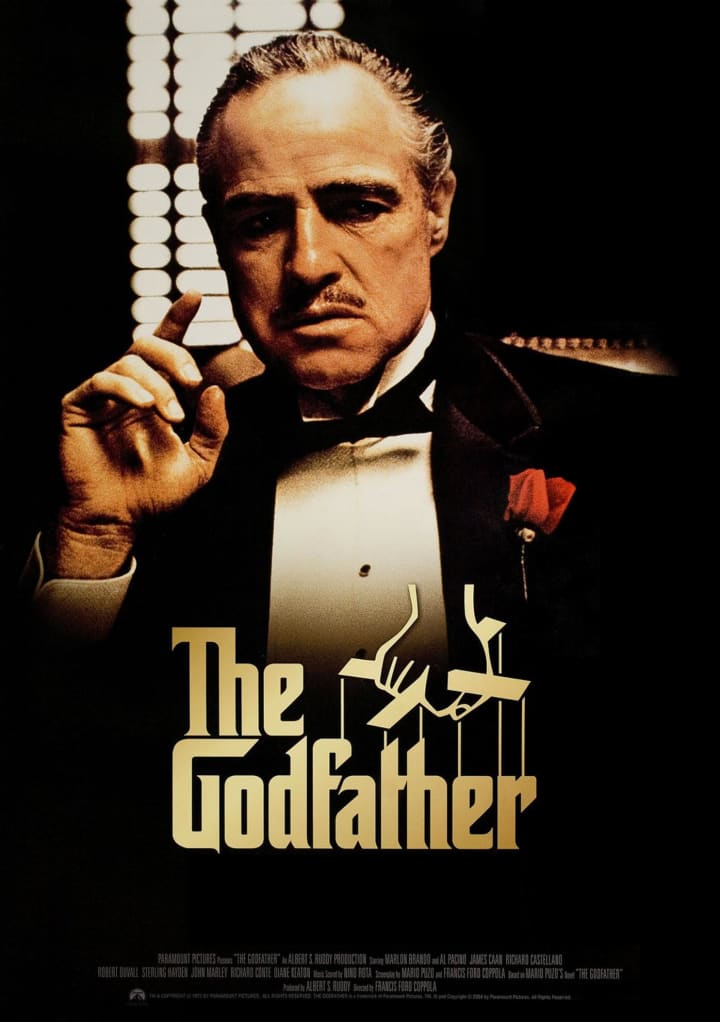
Perhaps one of the most obvious choices for this list is the first instalment of the greatest saga of all time: "The Godfather". About the Corleone Crime Family, this first stage deals with the introduction to the 'Five Families', the attack on Vito Corleone and the rise of Michael Corleone in a world he is reluctant to be a part of just yet. As Michael tries to maintain stability, has to escape for a while, tries to rekindle his romance with Kay Adams and get his father out of harm's way - we gain access to this solitary psychological journey of one man who does what he has to do instead of what he wants to do. The question we ask is whether and when those two become the same thing. I would personally say halfway through the second movie.
The audience is drawn to the epic because of its great insight into the life of the great crime families. Based on the book by Mario Puzo, most of the logistics and workings of the novel are based on very true events. The film though, offers us more than the book actually does since it also gives us the more familial and relative side to the argument. We see the relationship between the brothers, the pregnant sister's woes over her abusive husband and in the wedding scene, the connection between the close and extended family. Not only is this a crime drama, which ultimately sits well with a law-abiding audience who want to get more of a look in to the life they, hopefully, will never end up in - but this is also a film about family and how blood is thicker than water...or, olive oil.
This epic offered so very much to cinema as a whole because of the way in which it basically inspired an entire culture of new-age crime films. Crime films became less about detectives and investigations and more about the criminals themselves and the underworld they were a part of. Films like Quentin Tarantino's "Pulp Fiction", Polanski's "Chinatown", and even "Donnie Brasco" are just a few of the ways "The Godfather" has made its incredible impact on the way the audience views the crime film today. Less about the solution to the crime and more about the crimes themselves and the logistics involved - begun by the Rat Pack's "Ocean's" films and perfected by "The Godfather" saga, I think it has become one of the great genres of cinema through its changes and alterations.
The reason "The Godfather" has endured for so long is because to this day, it is still fascinating to watch. The combination of brilliant acting from Al Pacino and Marlon Brando, with the amazing dialogues and great filming - especially the baptism scene. This film basically offers us everything from crime and drama to romance, adventure and action. Not since "Citizen Kane" has a film changed the face of cinema more than this.
About the Creator
Annie Kapur
200K+ Reads on Vocal.
English Lecturer
🎓Literature & Writing (B.A)
🎓Film & Writing (M.A)
🎓Secondary English Education (PgDipEd) (QTS)
📍Birmingham, UK


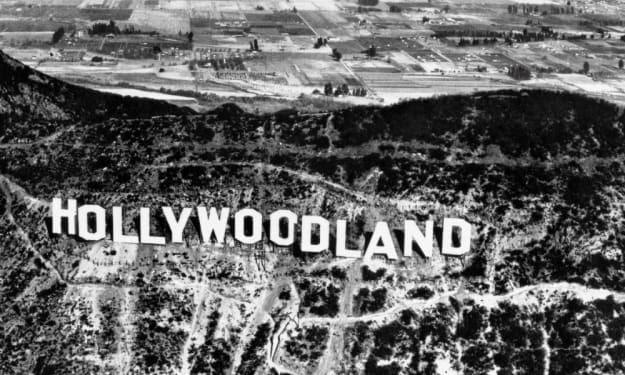



Comments
There are no comments for this story
Be the first to respond and start the conversation.